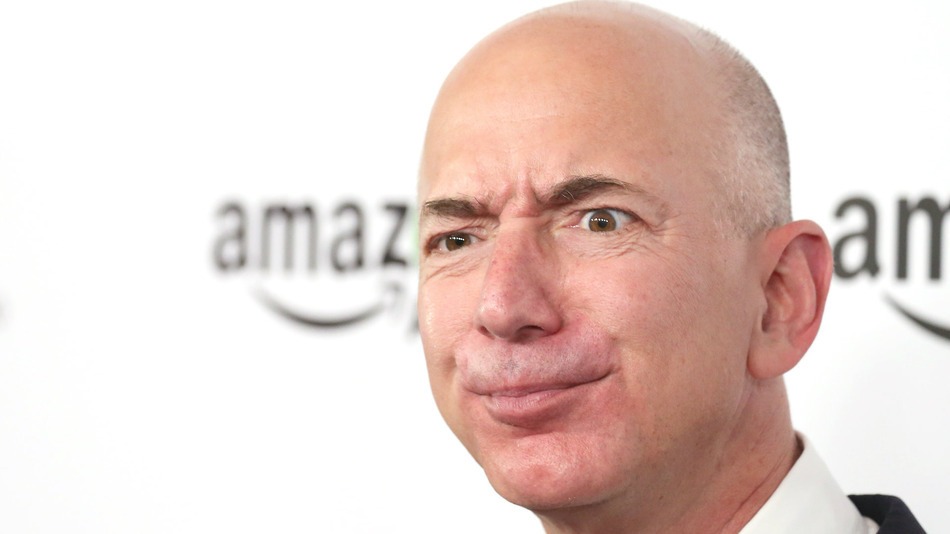Amazon’s Jeff Bezos is direct, except when it comes to culture

Amazon CEO Jeff Bezos just released a very clear shareholder letter. He’s very clear and direct about Amazon’s successful products. But when it comes to culture, he’s opaque and oblique. That speaks volumes.
I’m a fan of shareholder letters (like Warren Buffet’s) where the CEO lays out what happening in clear simple language. Bezos’ 9-page letter lives up to that ideal, for the most part. He starts by bragging, of course:
This year, Amazon became the fastest company ever to reach $100 billion in annual sales. Also this year, Amazon Web Services is reaching $10 billion in annual sales …
When it comes to products and services, Bezos writes directly in the first person with both “we” and “you.” Here’s what he has to say about Amazon Prime:
We want Prime to be such a good value, you’d be irresponsible not to be a member. We’ve grown Prime two-day delivery selection from 1 million items to over 30 million, . . . We’ve added music, photo storage, the Kindle Owners’ Lending Library, and streaming films and TV.
Prime has become an all-you-can-eat, physical-digital hybrid that members love. Membership grew 51% last year – including 47% growth in the U.S. and even faster internationally – and there are now tens of millions of members worldwide. There’s a good chance you’re already one of them, but if you’re not – please be responsible – join Prime.
Bezos’ letter celebrates the idea of failure on the way to success. Here’s a bit about Amazon Marketplace.
We took two big swings and missed – with Auctions and zShops – before we launched Marketplace over 15 years ago. We learned from our failures and stayed stubborn on the vision, and today close to 50% of units sold on Amazon are sold by third-party sellers. Marketplace is great for customers because it adds unique selection, and it’s great for sellers – there are over 70,000 entrepreneurs with sales of more than $100,000 a year selling on Amazon, and they’ve created over 600,000 new jobs.
Amazon’s culture was the subject of a scathing article in the New York Times last year. Jeff Bezos issued a “non-denial denial.” The topic of culture appears early in the shareholder letter. But where the rest of letter is direct and first-person, the cultural discussion is strangely detached, with some telling passive constructions (shown in bold). The only use of “we” is where he disavows having a model culture.
A word about corporate cultures: for better or for worse, they are enduring, stable, hard to change. They can be a source of advantage or disadvantage. You can write down your corporate culture, but when you do so, you’re discovering it, uncovering it – not creating it. It is created slowly over time by the people and by events – by the stories of past success and failure that become a deep part of the company lore. If it’s a distinctive culture, it will fit certain people like a custom-made glove. The reason cultures are so stable in time is because people self-select. Someone energized by competitive zeal may select and be happy in one culture, while someone who loves to pioneer and invent may choose another. The world, thankfully, is full of many high-performing, highly distinctive corporate cultures. We never claim that our approach is the right one – just that it’s ours – and over the last two decades, we’ve collected a large group of like-minded people. Folks who find our approach energizing and meaningful.
After this philosophical digression, he returns to the first person “I” with this:
As I meet with teams across Amazon, I am continually amazed at the passion, intelligence and creativity on display. Our teams accomplished a lot in the last year, and I’d like to share a few of the highlights of our efforts . . .
While the shareholder letter is not addressed to employees, it certainly sends a message to those employees. Bezos’ oblique defense of Amazon’s culture reveals in what it conceals. I can read between the lines. If he was as honest about culture as he is about everything else, here’s what the letter would say:
We’ve had a lot of success. I celebrate successes like Amazon Prime, Marketplace, and Amazon Web Services as publicly as possible, and reward those who created them. And I don’t punish failure, so long as you are taking and analyzing risks appropriately. But you’re going to work damn hard here. This is the toughest company in the world. We have a hard-driving, competitive culture. If you like that, great. If not . . . well, it’s pretty entrenched, and we’re not going to change it no matter what. Deal with it.